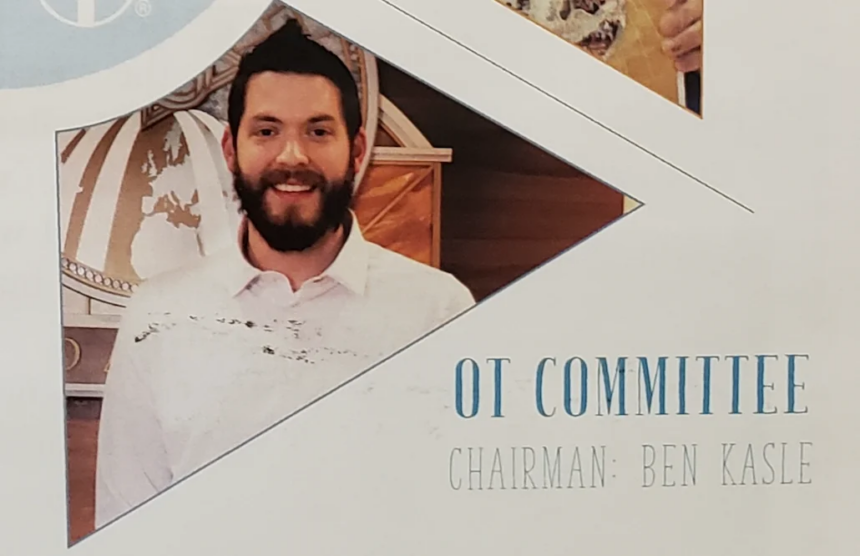Introduction
The Church of Scientology, founded by L. Ron Hubbard in 1953, has long been a subject of fascination and controversy. Its hierarchical structure, secretive practices, and emphasis on spiritual advancement through rigorous courses have drawn both devotees and critics. Within this complex organization, the Cincinnati Scientology Org represents a smaller but significant outpost, serving as a hub for local Scientologists seeking to advance their spiritual journeys. However, a troubling case from 2009 involving Benjamin Jacob Kasle has cast a shadow over the Cincinnati Org, raising questions about leadership, accountability, and the church’s handling of serious allegations. Kasle’s conviction for molesting a minor, followed by his surprising re-emergence as a high-ranking member of the church, underscores broader concerns about oversight within Scientology’s ranks.
This article explores the timeline of Kasle’s case, the structure of the Cincinnati Org, the role of the OT Committee, and the implications of his reinstatement. By examining the available details, we aim to provide a clear and balanced account of a story that intersects with ongoing debates about institutional transparency and justice.
Background: The Cincinnati Org and Kasle’s Role
The Cincinnati Scientology Organization operates as one of many local “orgs” within the global network of the Church of Scientology. Like other orgs, it offers courses, auditing sessions, and community activities designed to guide members along the “Bridge to Total Freedom,” Scientology’s path to spiritual enlightenment. In the early 2000s, Benjamin Jacob Kasle was a prominent figure within the Cincinnati Org. As a supervisor in the academy—a section responsible for training Scientologists in Hubbard’s teachings—Kasle held a position of authority, overseeing members as they progressed through their courses.

Kasle’s role placed him in close contact with students, including minors, who attended the org to study Scientology’s doctrines. His supervisory duties required trust and respect, as he was seen as a guide in the spiritual development of those under his care. However, by 2007, whispers of inappropriate behavior began to surface, threatening to disrupt the org’s operations and Kasle’s standing within it.
The Allegations and Conviction
In 2007, reports emerged that Kasle had engaged in inappropriate conduct with a 14-year-old girl at the Cincinnati Org. According to accounts from former staff members, concerns about Kasle’s behavior had been raised internally, with some staffers reporting their observations to the org’s ethics department—a Scientology body responsible for addressing violations of church policy. However, these initial reports allegedly went unaddressed, allowing Kasle to continue in his role without immediate consequence.
The situation escalated when a group of staff members, disillusioned with the org’s handling of the allegations, left the Cincinnati Org in 2007. One of these individuals took a decisive step by reporting Kasle’s behavior to local law enforcement, providing details that prompted an investigation. The police inquiry uncovered evidence that Kasle had molested a 14-year-old girl at the org, leading to his arrest and eventual prosecution.
In 2009, Benjamin Jacob Kasle was found guilty of the charges. The court’s decision marked a significant moment for the Cincinnati Org, as it brought public attention to a crime committed within the church’s walls. Kasle’s conviction resulted in a sentence that included registration as a sex offender, a status formalized in 2011. According to public records, his registration was listed as “active,” requiring him to comply with legal restrictions for a designated period, typically ten years for offenses of this nature.
The Freewinds Incident and Internal Oversight
Adding complexity to Kasle’s case, reports surfaced that he had faced earlier allegations of misconduct. Just months before the Cincinnati incident came to light, Kasle had been reported to the church’s ethics department for allegedly soliciting a different minor during an event on the Freewinds, a Scientology-operated cruise ship used for advanced spiritual retreats. The Freewinds holds a special place in Scientology, hosting exclusive courses and events for high-ranking members, including those pursuing Operating Thetan (OT) levels—the church’s most advanced spiritual stages.

The Freewinds allegation, if true, suggests a pattern of behavior that went unaddressed by Scientology’s internal mechanisms. According to sources familiar with the incident, Kasle faced no formal punishment from the church, possibly due to his status within the Cincinnati Org or connections within the broader Scientology community. This lack of action raises questions about the effectiveness of Scientology’s ethics system, which is designed to enforce moral and behavioral standards among members.
The OT Committee and Kasle’s Re-emergence
Despite his conviction and sex offender status, Kasle’s story took an unexpected turn. In recent years, a Scientology publication announced that he had been appointed Chairman of the Cincinnati Org’s OT Committee, a prestigious and influential role within the church. To understand the significance of this development, it’s necessary to examine the function of the OT Committee.
The OT Committee is a group of elite Scientologists who have typically achieved advanced Operating Thetan levels, signifying their dedication and spiritual progress within the church. Members of the committee are tasked with coordinating volunteer efforts, promoting Scientology’s teachings, and expanding the org’s influence in the local community. The Chairman, in particular, serves as a leader, guiding the committee’s initiatives and representing the org’s most committed members.
Kasle’s appointment to this position is striking for several reasons. First, it suggests that he has regained the trust and respect of the Cincinnati Org’s leadership, despite his criminal history. Second, it raises questions about how he was able to assume such a role while still under the constraints of his sex offender registration—or, as some reports claim, after being removed from the registry earlier than expected. Public records typically require sex offenders to remain registered for a minimum period, often ten years, depending on the offense and jurisdiction. If Kasle was removed from the registry after seven years, as some sources suggest, this could indicate a legal or administrative anomaly that warrants further scrutiny.
Broader Context: Scientology and Accountability
Kasle’s case does not exist in isolation. It coincides with other high-profile controversies involving the Church of Scientology, particularly allegations of mishandling sexual abuse cases. For example, the trial of Danny Masterson, a well-known actor and Scientologist, has drawn attention to claims that the church shielded him from accountability for alleged sexual assaults. While Masterson’s case differs in scope and specifics, it contributes to a broader narrative of skepticism about Scientology’s internal governance and its approach to addressing serious allegations.
Critics argue that Scientology’s emphasis on internal resolution—through mechanisms like the ethics department—can prioritize the church’s reputation over justice for victims. Supporters, however, contend that the church operates within its own ethical framework, distinct from secular legal systems, and that members are held to rigorous standards of conduct. Kasle’s re-emergence as a leader in the Cincinnati Org complicates this debate, as it suggests that even a public conviction may not permanently bar someone from holding a position of influence within the church.
Community Impact and Response
The Cincinnati Org serves a tight-knit community of Scientologists, many of whom view the org as a spiritual home. Kasle’s conviction likely caused significant disruption, both for members who trusted him and for the org’s public image. The departure of staff members in 2007, some of whom reported Kasle’s behavior, indicates internal dissent and a fracturing of the org’s cohesion at the time.
The announcement of Kasle’s appointment to the OT Committee may have elicited mixed reactions. For some Scientologists, his return could symbolize redemption or forgiveness, aligning with the church’s belief in personal transformation through spiritual practice. For others, particularly those aware of his past, it may raise concerns about safety, transparency, and the criteria for leadership roles. Without access to internal discussions, it’s difficult to gauge the full extent of the community’s response, but the public nature of the announcement suggests confidence on the part of the org’s leadership.
Legal and Ethical Questions
Kasle’s case highlights several legal and ethical issues. If he was indeed removed from the sex offender registry early, what circumstances allowed for this? Was it a result of legal proceedings, such as an appeal or expungement, or an error in record-keeping? Additionally, how does the Cincinnati Org justify appointing someone with a criminal history to a leadership role, particularly one involving community outreach and influence?
From an ethical standpoint, the case underscores the tension between rehabilitation and accountability. While individuals can and do reform after serving their sentences, crimes involving minors often carry a unique stigma, especially in organizations that interact with families and young people. The church’s decision to elevate Kasle suggests a belief in his rehabilitation, but it also risks alienating those who prioritize strict safeguards against recidivism.
Conclusion
The case of Benjamin Jacob Kasle is a troubling chapter in the history of the Cincinnati Scientology Organization. His 2009 conviction for molesting a minor exposed vulnerabilities in the org’s oversight, while his recent appointment as Chairman of the OT Committee raises questions about accountability, redemption, and institutional priorities. As the Church of Scientology navigates ongoing scrutiny, Kasle’s story serves as a microcosm of broader challenges facing the organization—balancing spiritual ideals with the demands of transparency and justice.
For the Cincinnati Org, the path forward involves rebuilding trust with its members and the public. For observers, Kasle’s case is a reminder of the complexities inherent in any institution, particularly one as insular and multifaceted as Scientology. While the church may view Kasle’s leadership as a testament to personal growth, others may see it as a failure to prioritize safety and accountability. Ultimately, the resolution of these tensions will shape the org’s future and its place within the broader Scientology community







